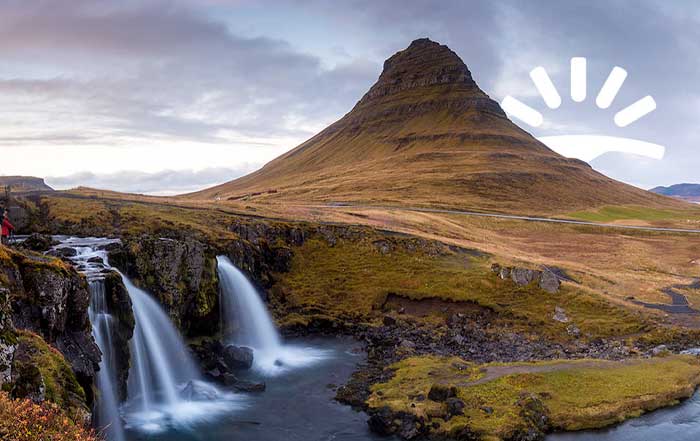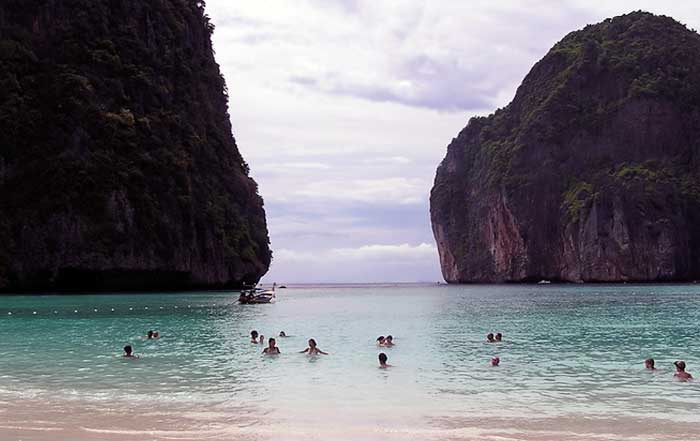Cultural Exchange Programs in 2026: Strategic Bridges for a Connected World
Cultural exchange programs have become one of the most strategic tools for governments, businesses, educators, and families seeking to thrive in an increasingly complex global landscape. By 2026, these initiatives are no longer seen merely as enriching experiences for students or adventurous professionals; they are recognized as critical investments in diplomacy, workforce capability, innovation, and social cohesion. For the global community that turns to WorldWeTravel.com to understand how travel intersects with business, culture, technology, health, and the economy, cultural exchange programs represent a powerful lens through which to view the changing world.
As cross-border mobility resumes its growth following the disruptions of the early 2020s, and as digital collaboration becomes embedded in everyday work and learning, cultural exchange is evolving into a sophisticated ecosystem. From student mobility between the United States and Europe, to professional assignments in Asia, to community-based initiatives in Africa and South America, these programs are reshaping how people live, work, and understand one another.
From Post-War Diplomacy to Strategic Global Mobility
The historical evolution of cultural exchange illustrates how profoundly its purpose has shifted over time. In the aftermath of World War II, initiatives such as the Fulbright Program and UNESCO were established to prevent future conflicts by fostering dialogue and understanding between societies that had been torn apart. These early frameworks were driven by the belief that sustained educational and cultural engagement could create a more peaceful international order.
Throughout the second half of the twentieth century, exchange programs were closely tied to diplomacy and ideological competition, particularly during the Cold War. Governments sponsored scholars, artists, and professionals to travel, teach, and study abroad, with the dual aim of building mutual understanding and projecting national values. Over time, this evolved into a more diversified landscape that included youth exchanges, arts and sports programs, and vocational initiatives tailored to specific sectors.
By the early 2000s, regional initiatives such as Erasmus in Europe, later expanded as Erasmus+, had normalized student mobility as a core component of higher education. Universities in the United Kingdom, Germany, France, Italy, Spain, Netherlands, and Sweden increasingly positioned international exposure as a competitive advantage for graduates entering global labor markets. As international travel became more accessible, cultural exchange moved from being a privilege of elites to an attainable goal for a broader segment of society.
The digital revolution of the 2010s and 2020s then introduced a new dimension: virtual and hybrid exchanges that complemented or, in some cases, replaced physical mobility. This shift accelerated during the COVID-19 pandemic and has since matured into a permanent feature of the cultural exchange landscape, enabling institutions and participants to maintain cross-border collaboration even amid travel restrictions or budget constraints.
For readers of WorldWeTravel.com, this historical trajectory is more than a narrative; it explains why destinations, from Japan and South Korea to Canada, Australia, and New Zealand, now compete not only for tourists, but for students, remote workers, and professionals who bring long-term economic and cultural value.
Strategic Drivers Behind the Global Expansion of Exchange
In 2026, several powerful forces are simultaneously driving the expansion and transformation of cultural exchange programs, turning them into essential instruments for nations and organizations that wish to remain competitive and credible on the world stage.
Globalization and the Demands of International Business
Although globalization has become more contested and complex, multinational companies and fast-growing mid-sized firms in the United States, United Kingdom, Singapore, Denmark, and Switzerland still rely heavily on employees who can operate effectively across cultures. The ability to lead diverse teams, negotiate with international partners, and adapt to local expectations has become a core competency for leadership roles.
Cultural exchange programs now function as early pipelines for developing this capability. Students who participate in exchanges in Asia, internships in Europe, or fellowship placements in Africa often progress into roles in international business, consulting, finance, and technology. Organizations such as the World Economic Forum and OECD routinely emphasize the importance of cross-cultural skills in their analyses of the future of work; executives and HR leaders increasingly view structured international experiences as a strong signal of readiness for global assignments. Those exploring business travel and mobility can see how cultural exchange is becoming intertwined with corporate strategy.
Education, Equity, and Global Competence
Universities and schools remain at the core of cultural exchange, but their objectives have broadened significantly. Institutions in North America, Europe, and Asia are under pressure to prepare graduates not only with technical expertise but with global competence: the ability to collaborate with people from different backgrounds, to understand global issues, and to navigate unfamiliar environments responsibly.
Scholarship schemes such as the Gilman Scholarship Program in the United States and the Chevening Scholarship in the United Kingdom have helped democratize access to international experiences by targeting students who might otherwise be excluded for financial reasons. Learn more about these efforts through the Gilman Scholarship Program and the Chevening Scholarship.
At the same time, leading bodies such as UNESCO and the OECD provide guidance on global citizenship education and internationalization strategies, helping schools and universities design programs that are inclusive, ethical, and aligned with learning outcomes. For families planning long-term educational pathways, the intersection of family travel, education, and culture is becoming a major decision factor, influencing where children study, which languages they learn, and how they build their early networks.
Soft Power, Public Diplomacy, and International Reputation
Nations increasingly recognize that cultural exchange is one of the most credible and cost-effective instruments of soft power. Programs such as the Peace Corps, the Japan Exchange and Teaching (JET) Programme, and various language and cultural institutes sponsored by governments in Europe and Asia are designed not only to provide services abroad but also to build long-term goodwill and networks of alumni who understand and, often, advocate for the host country.
Public diplomacy strategies developed by ministries of foreign affairs, including those in Germany, France, and South Korea, now integrate cultural and educational exchanges alongside media and digital outreach. Institutions such as the U.S. Department of State's Bureau of Educational and Cultural Affairs and the British Council provide detailed frameworks and data on how exchanges support diplomatic objectives, from conflict prevention to economic partnerships.
For the global business audience of WorldWeTravel.com, these dynamics matter because they shape visa policies, bilateral agreements, and the overall attractiveness of destinations for investment, conferences, and corporate relocation. Understanding how cultural exchange supports national branding can inform strategic decisions on where to expand operations or host international events.
Technology and the Rise of Virtual and Hybrid Exchange
Technological innovation has fundamentally changed how cultural exchange is conceived and delivered. High-speed connectivity, collaboration platforms, and translation tools now allow students, professionals, and community leaders to engage across borders without necessarily boarding a plane.
Virtual exchange initiatives-such as those promoted by organizations like Soliya-create structured dialogues between participants in regions that might be politically sensitive or logistically difficult to reach. These programs are supported by research from bodies like the Brookings Institution and the Institute of International Education, which highlight their potential to broaden access and deepen intercultural understanding.
Hybrid models, combining online preparation with shorter or more targeted physical stays, have become particularly attractive for universities and companies seeking to balance cost, sustainability, and impact. For those tracking how technology is reshaping travel and work, virtual exchange represents a key development, blurring traditional boundaries between travel, remote collaboration, and global education.
Tangible Benefits: From Individual Transformation to Macroeconomic Impact
The value of cultural exchange is often described in personal terms-expanded horizons, new friendships, language skills-but in 2026, decision-makers are increasingly focused on the measurable outcomes these programs deliver for economies, organizations, and societies.
Individual Growth, Skills, and Career Trajectories
Participants in cultural exchange programs consistently report significant development in adaptability, problem-solving, and communication. Immersion in a foreign environment requires them to interpret unfamiliar cues, negotiate meaning across language barriers, and manage ambiguity, all of which are increasingly prized in dynamic sectors such as technology, finance, and creative industries.
Studies by organizations like the Institute of International Education and reports from OECD member countries indicate that alumni of exchange programs often achieve stronger employment outcomes, higher levels of international mobility, and greater participation in leadership roles. Many global companies now explicitly recognize study abroad or international work experience in their recruitment criteria.
For readers exploring career-focused travel and international work, structured exchange programs offer a tested pathway to build both soft skills and professional networks across regions such as Asia-Pacific, Europe, and North America.
Strengthening International Relationships and Social Cohesion
At a societal level, cultural exchange contributes to reducing stereotypes, countering misinformation, and building empathy between communities that might otherwise encounter each other only through media or political rhetoric. Alumni networks from initiatives such as Erasmus, Fulbright, and various bilateral programs form dense webs of relationships that span universities, businesses, NGOs, and government agencies.
These networks often become critical during crises. During global health emergencies, natural disasters, or geopolitical tensions, trusted relationships formed through exchange can facilitate rapid cooperation, data sharing, and joint problem-solving. Organizations like the World Health Organization and World Bank frequently draw on international expert communities, many of whom first connected through academic or professional exchanges, to design and implement coordinated responses.
From a cultural perspective, exchange programs support the preservation and appreciation of diverse traditions, languages, and artistic expressions. Initiatives aligned with cultural tourism and heritage travel encourage visitors not only to consume local culture but to engage with it responsibly, supporting local artists, educators, and community leaders.
Economic Contributions to Host and Sending Countries
The economic impact of cultural exchange is now well documented. International students and exchange participants contribute significantly to host economies through tuition, accommodation, travel, and daily expenditures. In countries such as the United States, United Kingdom, Australia, Canada, and Germany, international education is a major export sector, generating billions in revenue and supporting hundreds of thousands of jobs.
Reports from the OECD and national education agencies highlight that graduates who remain in host countries, even temporarily, often fill skills gaps in high-demand sectors such as engineering, healthcare, and digital technologies. Others return home as informal ambassadors, facilitating trade links, investment flows, and research partnerships that benefit both sides.
For businesses and investors analyzing global economic trends and travel flows, cultural exchange programs are an important indicator of a destination's openness, talent pipeline, and long-term competitiveness. Cities and regions that successfully attract and retain international students and professionals often see corresponding growth in innovation ecosystems, start-up activity, and international tourism.
Persistent Challenges in 2026
Despite their many benefits, cultural exchange programs in 2026 face a range of structural and emerging challenges that policymakers, institutions, and businesses must address to sustain their impact and legitimacy.
Financial Barriers and Unequal Access
Cost remains one of the most significant obstacles. Travel, visas, insurance, and living expenses put traditional exchanges out of reach for many students and early-career professionals, particularly from lower-income backgrounds or countries with weaker currencies. Even in wealthier nations, rising tuition and living costs in major hubs like London, New York, Tokyo, and Singapore can deter participation.
Scholarships and grants, including those offered by governments, universities, and private foundations, have expanded, but demand still far exceeds supply. Organizations such as the World Bank and UNDP emphasize that reducing inequality in access to global opportunities is crucial for inclusive development. If cultural exchange remains concentrated among already privileged groups, its potential to foster broad-based understanding and social mobility will be limited.
Geopolitical Tensions, Regulation, and Security Concerns
Geopolitical shifts, heightened security concerns, and changing regulatory frameworks have introduced uncertainty into international mobility. Visa restrictions, tightened screening processes, and political tensions between major powers can disrupt or constrain exchange flows, particularly between regions such as North America, Europe, and parts of Asia.
Universities and program administrators must increasingly navigate complex legal and compliance environments, from data protection regulations to export controls on sensitive technologies. Institutions rely on guidance from entities such as the European Commission and national foreign ministries to balance openness with security.
For businesses planning global assignments, conferences, and cross-border projects, these dynamics require careful risk assessment and scenario planning, as shifts in policy can directly affect talent mobility and partnership continuity.
Cultural Misunderstandings and Ethical Considerations
While cultural exchange aims to reduce misunderstandings, it can also surface tensions and ethical concerns when poorly designed. Participants may encounter discrimination, culture shock, or misaligned expectations; host communities may feel that programs are extractive, benefiting visitors more than local residents.
In response, many programs now integrate pre-departure and on-site training on intercultural communication, power dynamics, and ethical engagement. Organizations draw on frameworks developed by bodies such as UNESCO and the Council of Europe to promote inclusive, rights-based approaches.
Health, safety, and well-being have also moved to the forefront. Institutions must ensure that participants are adequately supported, with clear protocols for physical and mental health, especially in regions facing instability or environmental risks. For those planning immersive experiences, resources on health and safe travel are increasingly indispensable.
Innovations Reshaping Cultural Exchange
The future of cultural exchange is being defined by innovation in program design, technology integration, and thematic specialization, making these initiatives more targeted, inclusive, and aligned with global priorities.
Hybrid and Short-Format Models
Hybrid programs, which combine virtual collaboration with shorter, intensive in-person components, are gaining traction across universities and professional networks. Participants might spend several months working on joint projects online before convening for a focused residency or field visit in Europe, Asia, or Africa.
This model reduces cost and environmental impact while preserving the depth of face-to-face interaction. It also allows working professionals, caregivers, and others with limited mobility to participate meaningfully. Research from organizations like the European University Association and the American Council on Education suggests that such formats can achieve comparable learning outcomes to traditional semester-long exchanges when carefully structured.
Thematic and Sector-Specific Exchanges
Another notable trend is the rise of niche programs focused on specific domains such as climate action, digital transformation, public health, entrepreneurship, and social innovation. These initiatives align cultural immersion with concrete projects or learning objectives, making them particularly attractive for mid-career professionals and organizations seeking targeted capacity building.
Programs focused on sustainability and regenerative tourism are especially relevant for readers interested in eco-conscious travel and retreats. Participants might collaborate with local communities in Thailand, Brazil, South Africa, or Norway on conservation, renewable energy, or sustainable hospitality initiatives, combining practical impact with deep cultural learning.
Community-Centric and Reciprocal Models
A growing emphasis on reciprocity is reshaping how cultural exchange is structured. Rather than positioning host communities as passive recipients of visitors, many programs now prioritize co-creation, local leadership, and long-term partnerships. Organizations such as Global Citizen Year, for example, place young participants in community-based projects where learning flows in both directions, and where local priorities drive the agenda. Learn more about these approaches through Global Citizen Year.
This shift aligns with broader conversations about ethical travel, decolonizing education, and ensuring that international engagement supports, rather than disrupts, local ecosystems. For travelers and professionals exploring transformative retreats and purposeful travel, community-centric exchange models provide a framework for engagement that is both impactful and respectful.
Looking Ahead: Cultural Exchange as a Strategic Imperative
As of 2026, cultural exchange programs stand at the intersection of multiple global trends: demographic shifts, technological innovation, geopolitical realignment, and the urgent need for collective action on climate, health, and inequality. Far from being optional or peripheral, they are emerging as strategic infrastructure for a world that must learn to cooperate across profound differences.
For governments, investing in cultural exchange is a way to strengthen soft power, attract talent, and build resilient international networks that can be activated in times of crisis or opportunity. For businesses, these programs cultivate globally fluent talent, open doors to new markets, and enhance corporate reputation in an era when stakeholders expect organizations to act responsibly and inclusively. For families and individuals, participation in exchange offers not just personal enrichment, but a tangible advantage in navigating careers and lives that are increasingly borderless.
The community at WorldWeTravel.com-spanning destinations, travel planning, family choices, business strategy, and cultural exploration-is uniquely positioned to leverage these opportunities. By understanding the evolving landscape of cultural exchange, readers can make informed decisions about where to study, work, invest, and collaborate, whether in North America, Europe, Asia, Africa, or South America.
The future of cultural exchange will be defined by its capacity to remain inclusive, sustainable, and deeply human in design. Programs that integrate rigorous preparation, ethical engagement, and meaningful collaboration will continue to build trust and shared purpose across borders. As global challenges intensify, the ability to listen, learn, and work together across cultures may well become one of the most critical competencies of the twenty-first century-and cultural exchange programs, in all their evolving forms, will remain at the heart of cultivating that capacity.










